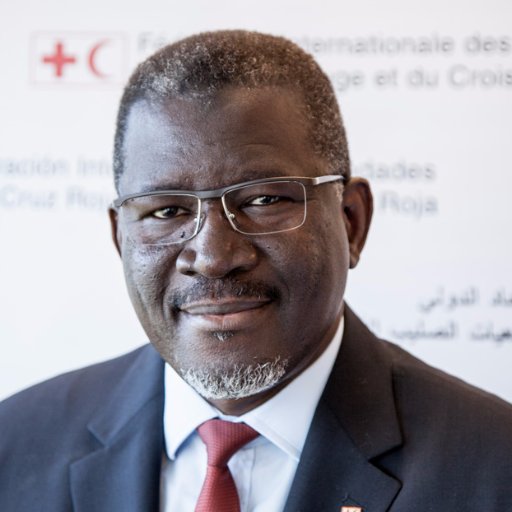Leadership Tips from Someone Who Knows

Duncan Green relays insights from a veteran humanitarian practitioner.
Just got back from Dakar, and a great few days with the latest cohort of leaders from UN, INGOs and Red Cross/Red Crescent, all coming together in our GELI programme on influencing and advocacy, learning from each other (and occasionally from the LSE team). On top of the busy working day schedule, we invited along Elhadj As Sy (right) to give an after dinner speech.
As, a former Secretary General of the International Federation of Red Cross and Red Crescent Societies (IFRC), gave a lovely speech on leadership, but also demonstrated it. A ‘gentle giant’, softly spoken with a hint of steel, he had the audience captivated even at the end of a long day.
Some quotes I managed to scribble down. The danger with reading, rather than hearing, these things is that so much is in the delivery – in black and white, insights can look like platitudes. See what you think.
 Top tips on how to the ‘daily exercise’ of being a leader:
Top tips on how to the ‘daily exercise’ of being a leader:
- Learn to ‘carry the weight’ of your institution – it’s history, reputation and the sacrifices of predecessors – and combine with your own style.
- Live with Loneliness – it’s an inevitable part of being a leader
- Be consistent
- Fulfil your promises
- There’s a tough balance to strike between being respectful/humble and making decisions, when only you are aware of all the pressures on you.
- Authenticity: ‘you should be able to wine and dine with a head of state and the next morning sit down on a mat with a community leader, and be the same person.’
- Be bold and courageous – follow your instinct, even when it means disagreeing with your bosses back in HQ.
- Talk to everybody.
- Respect has to be earned. It is not given.
Dealing with crises: ‘short term hazards’ always being in communities, and the key is to have been there before they hit (prevention) and after the hazard is over (‘what did we leave for next time?’). When Ebola hit in West Africa the reception for humanitarians was hostile in some places, warm in others where there was a prior presence and respect.
Respect includes language. If you want communities to collaborate, don’t say ‘dead body management’, as some technocrats did; say ‘safe and dignified burials’. Make sure you have staff who know the language and culture, and can identify ‘points of entry’ such as community leaders. If you don’t have them, tap into sociologists and anthropologists for advice.
Long term shifts – keeping things on the agenda when the spotlight is elsewhere – are even harder and a key test of leadership. This is where consistency matters (on health ‘we made so many promises and broke them’) as well as recognizing complexity (‘we go in and out with single issues in complex situations – ‘we don’t have money for water, only for Ebola’). In that latter situation, leaders will have to bend the rules of the aid business if they want to build trust ‘Being punished by bureaucrats is a trophy!’
Authoritarian v Democratic settings: In emergencies it’s easier to influence authoritarians, who have clearer lines of command and control. There, you need to go to the top. In democracies, by contrast, if you jump over the technical officer to get to the cabinet chief, they will block you.
Covid revealed ‘many weaknesses in the global system. Nations will always prioritize their citizens, but to hold more vaccines than you have people is totally unjustified. Equity is back at the table at all levels now.
But the most important thing is that it’s shown us the breakdown in Leadership in Africa’. Covid’s legacy may well be positive (African CDC, African Medical Agency, Common Regulatory Mechanism) but ‘why did they need Covid to realize 80% of all drugs were imported?’
Overall, a lovely and inspiring figure, who we will definitely be inviting back in future, if he can make it.
This first appeared on From Poverty to Power.
Photo by Miguel Á. Padriñán

